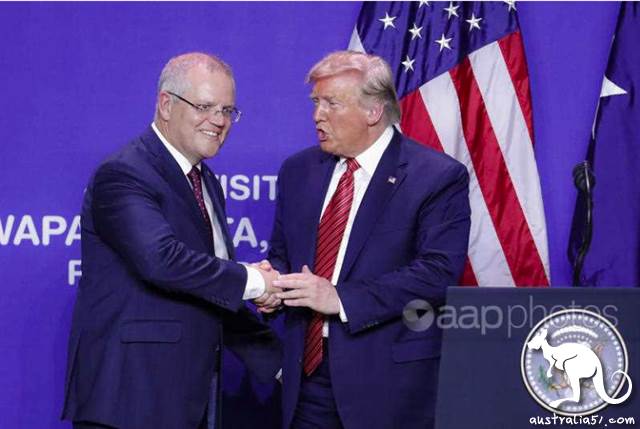
The United States is Australia's most important ally and Australia's largest source of investment
A new survey shows that most Australians in the debate about foreign investment mistook China for the country that invested most in Australia, and only one in six knew that the United States was the largest source of investment.
As the results of the survey were released, Australian exporters again issued a new warning that, despite the sharp rise in bilateral relationship between Australia and China, it would be "very costly" for Australia to abandon China as a major export market.
A survey of 1,054 Australians found that "the public has a good understanding of Australia's trade relationship but is generally ignorant of international investment ," the University of Sydney's American Research Center said in a report released today. "
A survey conducted by YouGov pollsters for the u.s. research center found that as many as 81% of respondents correctly identified china as australia's largest trading partner in four responses.
But when they asked which of the four countries listed was Australia's largest source of investment, only 17 per cent correctly identified the United States as the largest source of investment, with the majority -- up to 71 per cent -- wrongly designating China's largest source of investment.
Only 8% of respondents correctly ranked China behind the U.S. as the second largest source of investment. In this survey inquiry, the four countries listed are the United States, China, the United Kingdom and Japan.
The survey explains in a question that foreign investment includes buying land, property, stocks and financial instruments.
"Although China has some notable and controversial investments in Australia, China's investment in Australia has never exceeded that of the United States ," said the survey, titled" Long-term Partners: the US-Australia Investment Relations. "
A quarter of overseas investors in Australia come from the United States and currently amount to A $984 billion.
The study also points out that since the signing of the free trade agreement, the U.S. has halved its share of Australia's export market from 8% to 4%, but China's share of Australia's export market has steadily increased.
Ullon (David Uren), a non-resident scholar at the american research centre and former editor-in-chief of the australian newspaper economic, warned that the bilateral agreements pursued by the Trump government had caused australia "collateral damage" and that china had pledged to increase its purchases of american products by $200 billion ($284 billion) within two years.
Early evidence of "harm to Australia" was China's decision to open the door to imports of barley from the United States when it imposed a high tariff of 80 per cent on Australian barley.
"As China tries to meet its obligations [to buy American products in large quantities], it could do more damage ," Uran writes. "
To assess trade prospects from a broader perspective, he said, almost all countries were "taking some form of protectionist measures to protect sectors exposed to imported products in their economic" and Australia had to boycott the pressure from that.
The australian exporters are now trying to "manage" the impact of relationship trade tensions with china, according to a survey hearings parliament yesterday by the australian exporters chamber.
Jorge (Arnold Jorge), a representative of the Export Chamber of Commerce, told the parliament Commission that companies needed to "take into account the ongoing trade war" in studying how to diversify trade and investment in Australia.
In its report, the Export Chamber stated that "it is very difficult to operate in the current environment ".
Although he understood the call for a new approach, China's economic size and growth meant it was "a market we can not ignore ".
"We absolutely need to maintain our trade relationship …… with China and with other existing major trading partners ," Jorge said Giving up these markets will be very expensive. "

